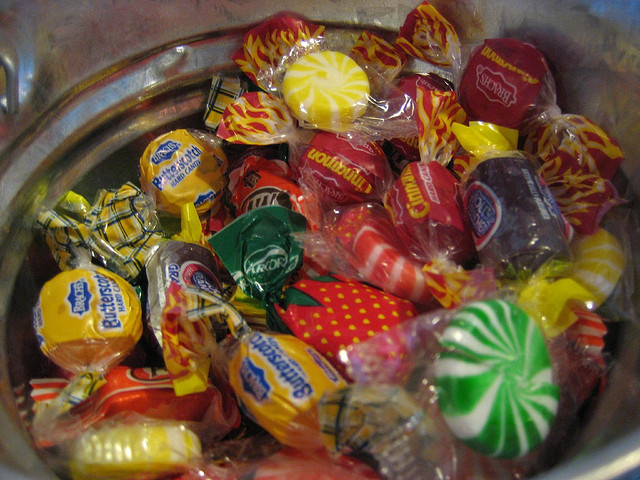 The Importance of Hospitality
The Importance of Hospitality
Today’s object is a bowl of candy—mixed hard candies would be good.
Early in the service, (not close to communion), invite your congregation to come forward and choose a piece of candy. Engage them in conversation as they do. Comment on their choices or perhaps their reluctance to choose. Suggest what you might like. Respond when they say thank you. Someone might ask for two. Allow them. Share a story about the candy. Make sure everyone is satisfied.
You can just ask everyone to file forward or you can be creative and ask certain people to choose first. Just make whatever you do complement your message.
Use the experience to talk about hospitality.
Hospitality is the common theme of today’s lessons. In the Gospel, Jesus refers to the accepted protocol of honoring guests. Hebrews commends the practice of hospitality. Proverbs teaches the recipients of hospitality a lesson in grace.
As your congregation returns to their seats to enjoy their treat, talk to them about hospitality in today’s world and in ancient Israel.
Life was a bit different then. Travel could be dangerous and unpredictable. A crippled beast of burden, lack of water, an unexpected illness or accident, sudden changes in the weather—all could be life-threatening. Hospitality was expected.
But there is another reason for hospitality. It was entertaining. There were no newspapers, radios, or TVs. People worked at home and traveled rarely. The sight of a stranger on the horizon meant an evening of good conversation, news from far away. Perhaps they would be carrying exotic things.
There was something in it for everyone.
Ask your congregation what hospitality means to them today and how they might feel if a stranger knocked on their door expecting a meal and lodging.
Meals are a common setting in scripture, culminating in the ritual that commemorates the Last Supper and Jesus’ sacrifice.
Talk about what Jesus and the disciples learned around the dinner or banquet table, preaching on the hills of Galilee, and after the Resurrection—when Jesus shares a meal in Emmaus and cooks fish on the shore as he waits for the disciples to anchor their fishing boat. Remind them of meals with tax collectors, the wedding feast in Cana, the visits with his friends in Bethany, and the hospitality he enjoyed on occasion with richer friends.
Talk about your own meal experiences. The family dinner (or the parish dinner) is where we learn to work together. The home table is where we learn manners and to carry a conversation. We learn how to treat guests. The church can be a place to learn these things, too.
There is a scene in the classic movie, To Kill a Mockingbird, where the Finch Family sits down to eat together. A young friend of Scout’s, a boy from less fortunate circumstances, is invited to join them. The boy is overwhelmed by the feast put before him. Scout responds in critical amazement as he pours a pitcher of syrup over his food. She is stopped by her father and the housekeeper and deeply embarrassed.
A similar scene might be repeated in our families as our children learn how to treat guests.
- How do we treat the strangers in our midst? Are they made truly welcome? Truly valued? Truly equal at the table? At the Eucharist?
- Do we engage them in conversation, eager for news from other places? Do we make our church homes places they will feel comfortable returning to?
- Do we seek only members who can contribute or who are like us? Do we welcome those who cannot contribute in the ways we expect?
- What might we learn from our visitors?
Hospitality must be modeled. You just did this with you candy exercise!
In practicing hospitality we are modeling godly behavior. Are we doing a good job?
